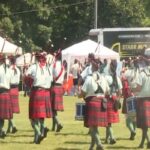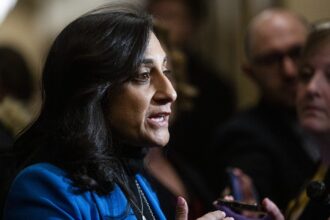In a powerful testament to perseverance and the pursuit of lifelong learning, 94-year-old Irene Poitras has become the oldest Indigenous graduate in the University of Saskatchewan’s history, crossing the convocation stage to thunderous applause from faculty, fellow graduates, and family members.
“I never thought I would live to see this day,” Poitras told CO24 News in an exclusive interview following the ceremony. “Education was denied to many of us when we were young. This degree isn’t just for me—it’s for all the elders who never got their chance.”
Poitras, a respected Cree elder from Muscowpetung First Nation, completed her Bachelor of Indigenous Studies after nearly a decade of part-time studies. Her academic journey began at 85, when she enrolled in her first university course following decades of community leadership and advocacy work across Saskatchewan.
University officials confirmed that Poitras is not only the oldest Indigenous graduate in the institution’s 117-year history but also among the oldest university graduates in Canadian history. Her achievement represents a significant milestone in the ongoing reconciliation efforts within Canada’s post-secondary education system.
“Mrs. Poitras embodies the spirit of reconciliation through education,” said Dr. Maria Henderson, Dean of Indigenous Studies at the university. “Her presence in our classrooms has enriched the learning experience for students of all ages and backgrounds. She brings perspectives and wisdom that textbooks simply cannot provide.”
The road to graduation wasn’t without challenges. Poitras navigated technological hurdles, adapted to online learning during the pandemic, and balanced her studies with her continuing role as a community elder. Family members helped with transportation to campus and technical support for assignments.
Her thesis project, “Traditional Knowledge Systems and Contemporary Education,” has already garnered attention from educational policy experts across the country for its insights into integrating Indigenous knowledge into modern curriculum design.
According to recent statistics from Indigenous Services Canada, only 11.4% of Indigenous adults over 65 have completed post-secondary education, compared to nearly 29% of non-Indigenous Canadians in the same age group. Poitras’s achievement highlights both the historical barriers to education and the potential for transformative change.
“When I was a child, we were told education wasn’t for us,” Poitras recalled. “Now I’ve shown my great-grandchildren that learning never stops. Knowledge is for everyone, at any age.”
The university has announced the creation of the Irene Poitras Scholarship for Indigenous Elders, which will provide financial support to Indigenous knowledge keepers seeking formal education credentials. The first recipient will be selected for the upcoming fall semester.
As universities across Canada work to implement the Truth and Reconciliation Commission’s Calls to Action regarding education, Poitras’s journey offers a compelling blueprint for meaningful inclusion of Indigenous elders in academic settings.
“What truly matters is that we’re finally beginning to heal the relationship between Indigenous knowledge systems and formal education,” Poitras reflected as she adjusted her graduation cap. “My question for all Canadians is this: How might our communities transform if we better valued the wisdom of our elders alongside the innovations of our youth?”
For more information on Indigenous education initiatives across Canada, visit our Canada News section.

























